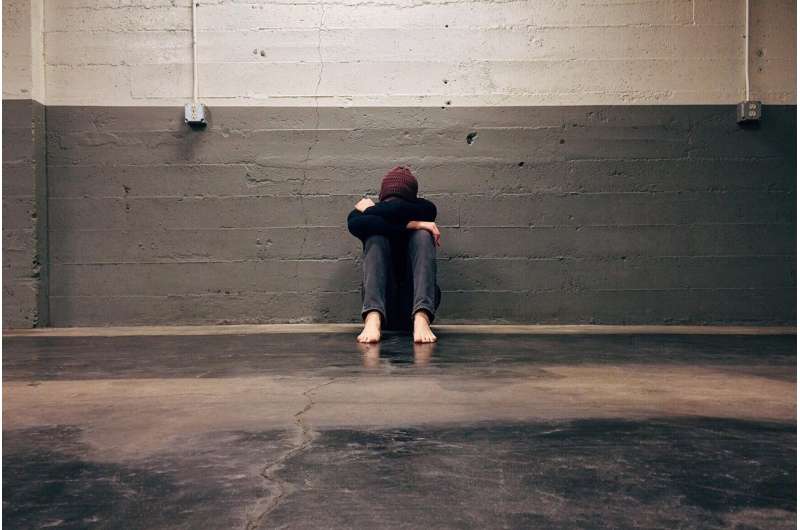More income support needed for young people experiencing homelessness, study finds

Life improved for young people experiencing homelessness once they were housed through the Government's Housing First program, with fewer admissions to hospital and visits to emergency departments, although their incomes remained stubbornly low, research published in the Journal of the Royal Society of New Zealand has found.
The researchers investigated the outcomes of 69 young people ranging in age from 18 to 25 years old, who received housing and support from The People's Project, a Kirikiriroa-based Housing First provider.
It is the first quantitative study of government service interactions for youth housed by Housing First, a holistic program which focuses on housing people and providing wraparound support without requiring them to first meet additional criteria, such as sobriety.
Lead researcher Dr. Brodie Fraser, from the University of Otago, Wellington, says the research found a significant reduction in the rate of hospitalizations and emergency department admissions once the young people had been housed. Specialist outpatient visits to hospital increased, indicating they were more able to manage ongoing health conditions.
Their incomes remained low, however. Income from wages and salaries doubled in the two years after being housed compared to the two years before. Despite this, the young people remained below the poverty line with a mean annual income level of $15,900 two years after being supported into housing.
Dr. Fraser says poverty is one of the main factors that leads to young people experiencing homelessness.
"Those supported by Housing First were still living in poverty, despite the lift in their incomes after they were housed. This is likely the result of many factors, including low social welfare rates, low incomes relative to the high cost of living, and pay inequities."
Young people in Aotearoa experience disproportionately high rates of homelessness. Of the 41,644 people who were experiencing homelessness at the time of the 2018 Census, half were 25 years old or younger. Sixty percent of M膩ori experiencing homelessness were under 25.
Dr. Fraser says the young people who were housed by The People's Project were more likely to be female and M膩ori. Many were also parents themselves.
"While Housing First is providing unparalleled support, it is clear benefit rates need to be lifted."
Dr. Fraser says the Government's Welfare Expert Advisory Group review of the social welfare system found welfare rates to be far too low, benefits increasingly difficult to access, and young M膩ori women with children often facing benefit sanctions or being penalized, rather than supported by welfare providers.
"The Government needs to urgently implement their recommendations to ensure our welfare system is providing enough support for young people to prevent homelessness.
"Housing First has been hugely beneficial for these young people, giving them the stability and support they need to thrive. We must make sure that fewer young people need these services in the first place, and that when they do, they are also given adequate financial support."
More information: Brodie Fraser et al, Post-housing first outcomes amongst a cohort of formerly homeless youth in Aotearoa New Zealand, Journal of the Royal Society of New Zealand (2022).
Provided by University of Otago


















